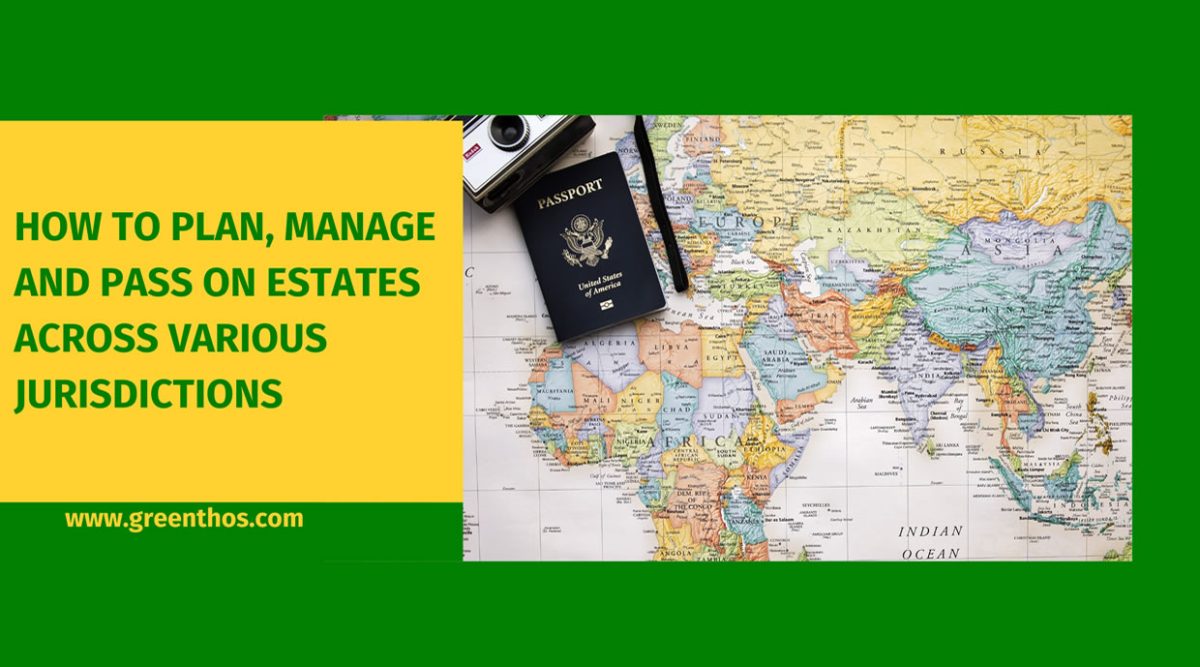Preserving wealth in-country can sometimes be challenging. Increasing globalization has seen more people live and work abroad. Also, Individuals and families are recognizing the increasing need for diversification through international opportunities to build and preserve their legacies. As such, investment holdings outside one’s country of residence are not unheard of.
An estate plan helps individuals and families with investments, assets, business operations in various jurisdictions to properly record their affairs and ensure that their estate is protected and passed on to future generations. Robust estate planning should offer you protection without borders.
When you acquire property abroad, it is very important to ensure that you have an estate plan in place. There is also need to understand the laws that govern property acquisition and estate planning in those countries where you acquire property. For example, in the United Kingdom, inheritance tax is set at 40% of the estate value that is above the threshold which may vary according to the tax laws. In the united states, estate tax rate is approximately 46% of the property value with an exemption of just $60,000 for foreigners.
With proper estate planning, the estate tax or inheritance tax can be avoided or hedged against. Hiring professionals with sound international expertise could fundamentally lower your tax bill thereby preserving your legacy for future generations.
Will Administration Across Jurisdictions
Some of the questions that arise when one wants to make a Will for property that might not be in the same jurisdiction include: Does one Will protect all the assets I own across borders? Do I need to do separate Wills for each country?
The simple answer is that one Will can be done to cater for all your assets including those abroad. However, the administration process for assets covered under such a Will is different in the way that probate is handled. Probate is a process that validates a Will and empowers the named executors to act according to the dictates of the Will.
Probate is usually granted only in respect of properties within the country where it is obtained. So, to ensure that probate can also be granted to cover all assets in the Will, a process called “resealing” needs to happen.
Section 2 of the Probates Re-Sealing Act provides that: “Where a court of probate in any part of the Commonwealth in any foreign country, or a British court in a foreign country, has either before or after the passing of this Act granted probate or letters of administration in respect of the estate of a deceased person, the probate or letters so granted may, on being produced to, and a copy deposited with, the High Court, be sealed with the seal of that court, and thereupon shall be of the like force and effect, and have the same operation in Uganda as if granted by that court.”
The property in the resealing jurisdiction can then be administered by the Executor(s) of the deceased person’s Estate. The resealing is completed when the Registrar of the resealing court sends a notice to the Registrar of the court where the original grant of probate was made.
Conclusion
Estate planning when you have assets in different jurisdictions requires professional expertise to navigate. There is need to have strategies in place that not only manage the effect of inheritance tax but also ease business succession planning and the inter-generational transfer of wealth.
Do you want to eliminate confusion surrounding any and all of your assets? We can make such solutions work for you. Contact us today.
Disclaimer: This blog post is for informational purposes only and does not constitute financial or legal advice. Always consult with a qualified professional for personalized guidance.













